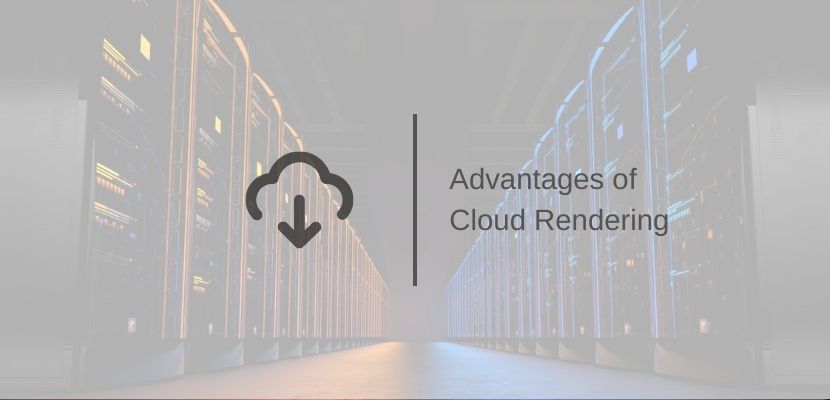
Cloud rendering services have become increasingly popular in recent years due to their ability to provide a number of advantages for CGI artists. In this article, we'll cover what cloud rendering is and its main advantages, which include cost savings, scalability, flexibility, and ease of use.
What is cloud rendering?
Cloud rendering is the process of using remote servers to perform the heavy calculations required to create images and animations. Instead of using the processing power of a local computer, rendering on the cloud allows users to access the power of a large network of servers (render farms) to create more complex and detailed visual effects. This technology is increasingly being used in the film, video game development, and architectural visualization industries.
Advantages of Cloud Rendering Services
Cost Savings
One of the main advantages of cloud rendering is that it allows for more efficient use of resources. Local computers, even those with high-end graphics cards, can struggle with the demands of rendering high-resolution images and animations. Cloud-based rendering removes this limitation by providing access to a virtually limitless amount of computing power. This can result in significant cost savings, as users no longer need to invest in expensive hardware or spend a large amount of time rendering with their own computing power.
Scalability
Scalability is another major advantage of online cloud rendering services. With traditional on-premise solutions, users are limited by the amount of resources they have available. If a project requires more resources than what is available, users must either purchase additional hardware or wait until resources become available. With cloud rendering services, users can easily scale their resources up or down as needed, providing them with the flexibility to handle large or small projects with ease.
Flexibility
Flexibility is another key advantage of cloud rendering services. Users can easily add or remove resources as needed, depending on the demands of their projects. This makes it easier for businesses to manage their rendering needs, and for individuals to take on more complex projects without needing to invest in expensive hardware. In most render farms, like RebusFarm, users only pay for the computing power they use to render their projects.
Rendering in the cloud also allows for greater collaboration and sharing of resources. With cloud rendering, users can work on the same project from different locations and share resources easily. This is particularly useful for businesses and organizations that have employees working remotely. It also makes it easier for teams to collaborate on projects and share their work with others.
Ease of use
Ease of use is another advantage of render cloud services. Traditional on-premise solutions can be complex and difficult to use, requiring a certain level of technical expertise to set up and maintain. Cloud rendering services, on the other hand, are typically easy to use and require minimal technical expertise. This makes it easy for users of all skill levels to take advantage of the benefits of cloud rendering.
The RebusFarm software is designed to make the rendering process at the Rebus Render Farm simple and convenient. The software can be integrated into your 3D application and provides a variety of features that allow you to set up rendering with minimal effort. It is designed with ease of use in mind.
In conclusion, cloud rendering is a powerful technology that is changing the way visual effects, video games, and architectural visualization are created. It allows for more efficient use of resources, greater flexibility and scalability, and greater collaboration and sharing of resources. As the technology continues to develop, it is likely that more industries will begin to adopt cloud rendering, making it an increasingly important tool in the digital media landscape. To ensure the best results, it's crucial to have a reliable service provider and a robust internet connection. As the technology continues to evolve, it will be exciting to see how it will be used in new and innovative ways, and how it will shape the future of digital media.

About the author
Nicole Holt is an experienced 3D enthusiast with a career in marketing and content writing. Thanks to this unique combination, she is able to showcase the technical intricacies of 3D art and rendering while also making the subject accessible to a wide audience. When she's not immersed in the digital world, Nicole can be found in the great outdoors, most likely with her beloved dog, Sammy.
